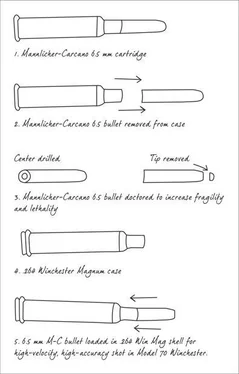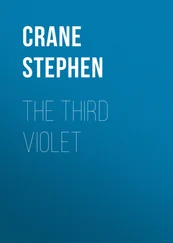Stephen Hunter - The Third Bullet
Здесь есть возможность читать онлайн «Stephen Hunter - The Third Bullet» весь текст электронной книги совершенно бесплатно (целиком полную версию без сокращений). В некоторых случаях можно слушать аудио, скачать через торрент в формате fb2 и присутствует краткое содержание. Жанр: Триллер, на английском языке. Описание произведения, (предисловие) а так же отзывы посетителей доступны на портале библиотеки ЛибКат.
- Название:The Third Bullet
- Автор:
- Жанр:
- Год:неизвестен
- ISBN:нет данных
- Рейтинг книги:5 / 5. Голосов: 1
-
Избранное:Добавить в избранное
- Отзывы:
-
Ваша оценка:
- 100
- 1
- 2
- 3
- 4
- 5
The Third Bullet: краткое содержание, описание и аннотация
Предлагаем к чтению аннотацию, описание, краткое содержание или предисловие (зависит от того, что написал сам автор книги «The Third Bullet»). Если вы не нашли необходимую информацию о книге — напишите в комментариях, мы постараемся отыскать её.
The Third Bullet — читать онлайн бесплатно полную книгу (весь текст) целиком
Ниже представлен текст книги, разбитый по страницам. Система сохранения места последней прочитанной страницы, позволяет с удобством читать онлайн бесплатно книгу «The Third Bullet», без необходимости каждый раз заново искать на чём Вы остановились. Поставьте закладку, и сможете в любой момент перейти на страницу, на которой закончили чтение.
Интервал:
Закладка:
Swagger sat in the business office of the Adolphus, where he was again staying in Dallas, and banged his head against the enigma at a computer monitor that the hotel provided its guests. Outside the door, prosperous men seemed to push to and fro; by extreme happenstance, the hotel was that weekend the site of some sort of JFK Assassination Research meeting.
Swagger had ridden down in the elevator with a batch of them, mostly heavyset white guys in sport shirts who hung together.
“Y’all interested in the assassination?” he asked one.
“Mmm,” said the man, looking off, as if he had some big secrets cooking and couldn’t share them with an outsider. Maybe he was the guy who realized that the Commies had not one or two but three Oswald clones in play on November 22.
Swagger looked back at his notepad, where, in childish script, in an attempt to keep it straight and orderly, he had inscribed some notes that anyone else might see as insane.
“Blue = 4, Green = 6, Red = 9,” read one line.
“Maybe numbers not as significant as colors?”
“Maybe sequence isn’t important?”
“Maybe it’s not a code, it’s just what he sees?”
“Why would Hugh have anything to do with 4, 6, or 9, or blue, green, or red?”
That was a stumper. He was, he realized, on the second step, but only on the basis of fragile assumption. That assumption: that Hugh’s last, best, lost work name was a reflection of Niles and Hugh’s love of Nabokov, and that it involved a pun, possibly cross-lingual, that could be noted only by someone who knew it existed.
So: what linked them?
But: there was no direct link between the three numbers, the three colors, and Hugh.
Except: the pistol, as his son noted, stood for espionage. It had to. It was exactly the implement any spy in the twenties or thirties might have carried if he didn’t have a Luger. What were its advantages over a Luger?
More firepower, ten rounds to seven.
Longer barrel, meaning more accuracy.
More ergonomic, because its weight was ahead of the trigger, not above it, as in a Luger.
More psychologically threatening to an opponent.
More flexible, as it could be mounted to a shoulder stock and used for longer-range shooting.
It did have disadvantages.
Bigger, heavier.
A little harder to load, with a stripper clip that demanded fine motor control to mate with the interior magazine lips, rather than a magazine, which, by gross motor movement, could just be shoved into the Luger’s grip.
Harder to conceal, maybe very difficult to conceal, because it was bigger.
Yet these were the sort of things a Bob Lee Swagger would consider, not a Niles Gardner. Niles, after all, was a lit guy, not a gun guy. He wouldn’t be thinking tactically but symbolically, and in his brain, the glamour and the romance and the vividness of classical prewar espionage, back when it was called the Great Game, was just as easily conveyed by the Mauser as by the Luger.
Maybe the meaning of the gun as tool was of less importance to Niles than the meaning of it as symbol. In his mind, it could and probably would be his image of his friend the heroic (three tours in ’Nam!) Hugh Meachum. After all, Hugh was the man Niles could never be but would always want to be. The gun, solid steel, precise, deadly, able to destroy at long distance, concealable under a Burberry trench coat, the indispensable leverage that enabled its possessor to control any dangerous transaction, was a perfect projection into objective reality that expressed all the Hugh traits that Niles didn’t have.
As Niles’s mind had to work, Hugh was the Red Nine. It had to be that way. Maybe the assumption wasn’t so small after all. The “Red” association was another buttress in the argument, for it conjured up Russia, which, after all, had been Hugh’s primary target, the Vietnam tours being mere diversions. It all fit together.
But it went nowhere. It didn’t connect to Nabokov, it didn’t connect to the Agency. It just sat there, an old pistol on a dead man’s desk, its secrets locked away, only a glow of hopes or fantasies about it, its sole uniqueness the Red Nine on its grip.
I wish I had a drink. I wish I had a cigarette. I wish I had a whore. I wish I had a mansion by the sea.
No, he didn’t. He didn’t wish he had any of those.
I wish I had an answer.
He thought that maybe that answer lay somewhere within the work of Sir Francis Galton, cousin to Darwin, Victorian polymath (Bob had to look up the new word).
He Googled Sir Francis.
The Wikipedia entry came up first, and he absorbed the info quickly.
Eugenicist. Another word to look up.
Hmm, seems to believe smart people should breed and dumb ones shouldn’t.
Fingerprints.
Hmm, noted the uniqueness of fingerprints, classified them, and thus invented the forensic discipline of fingerprint index, and thus, in one sense, was the father of scientific crime investigation.
Heredity.
Believed passionately in the power of genes (obviously, eugenics and fingerprints) and that talent clusters could be associated with certain families, i.e., those of the “superior” English upper class, into which he was born.
Synesthesia. It was something he had been the first in the world to note clinically.
But it was another new word.
Bob Googled it.
Synesthesia.
Alek’s grubby face stared at me from the screen. Same surly demeanor, same anger, same radiant negativity and self-pity, undercut with toxic defiance. It made me sick.
I staggered to the TV set and changed channels, but no matter where I turned, there was Alek, with some demented commentator spewing out the sordid details of his life. Russia, Marine Corps, attempts to defect, poor employment record, marriage to a beautiful Russian girl, father of two baby daughters, known for temper and abusive, explosive behavior. There was a fuzzy film of him handing out pro-Cuba pamphlets in New Orleans: really, what did he think that would accomplish?
Now and then they’d cut to film of his wife as she carried the two babies to a car amid a swarm of reporters and cameramen. I remember being struck with how pretty she seemed, but also how confused and vulnerable. I hoped she had somebody good to take care of her and was later gratified to discover the ministrations of the angelic Ruth Paine on Marina’s behalf. Thank God for the good people of the world, to somewhat ameliorate the pain caused by teams like Alek and Hugh.
It took a while, but I was more or less sober when I got around to assessing my position. Of Alek, even in police custody, I had little fear. What could he tell them, and when would he tell it? Listening carefully to the reports, I concluded he’d not yet made any wild charges about Russian agents guiding him. Rather, he’d been indicted only on the murder of Officer Tippit, for which he had no alibi and no defense and for which there were plenty of witnesses hungering to send him to fry in the chair. He was probably enjoying the attention and plotting how to spin it out for years and years and years. That he would die at the end was at this point meaningless; he was having too much fun being famous at last.
Every time the coverage shifted to Washington, to tracking the grief and shock of the capital city, to images of a weary LBJ arriving home, of Jackie returning alone to the White House, I changed channels, and by one had turned the damn thing off. I knew it was the beginning and that it would go on and on, and we’d have to get the reaction of each family member, each intimate, each acquaintance, we’d attend the funeral and the burial and the. . It was too much. So much for tough guy Hugh, the New Critic of politics and policy, not letting emotion or sentimentality get in his way.
Читать дальшеИнтервал:
Закладка:
Похожие книги на «The Third Bullet»
Представляем Вашему вниманию похожие книги на «The Third Bullet» списком для выбора. Мы отобрали схожую по названию и смыслу литературу в надежде предоставить читателям больше вариантов отыскать новые, интересные, ещё непрочитанные произведения.
Обсуждение, отзывы о книге «The Third Bullet» и просто собственные мнения читателей. Оставьте ваши комментарии, напишите, что Вы думаете о произведении, его смысле или главных героях. Укажите что конкретно понравилось, а что нет, и почему Вы так считаете.












